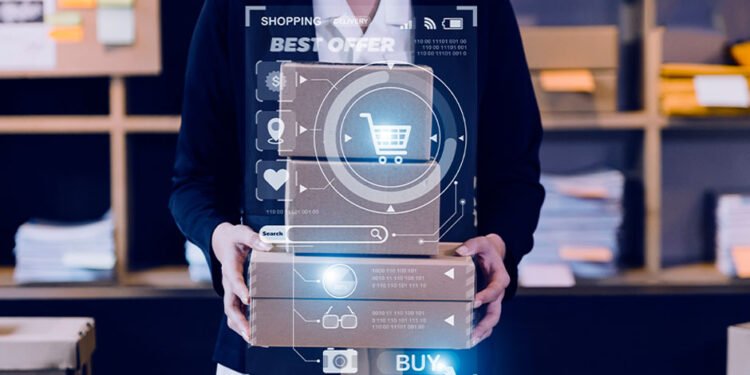Artificial intelligence (AI) has revolutionized various industries worldwide, including retail. AI has reshaped retail operations, customer experience, and customer interaction.
With AI, modern retail businesses are more efficient and responsive. They quickly pick up on customer demands and personalize their services accordingly. In this blog, let’s learn about the different impacts of AI on retail businesses!
1. Enhanced in-store customer experience
AI has modernized brick-and-mortar retail stores with several technologies and enhanced customer experience.
For instance, some retail stores implement AI-driven reliable solutions from self-checkout companies focused on enhancing shopping experiences.
These systems let customers enter, grab everything they want, and walk out! The system automatically processes the bills correctly.
Thus, customers don’t have to face wait lines or interact with human cashiers. Such seamless technologies leave a positive impression on customers while reducing labor costs for retailers!
Another way AI enhances retail stores is through layout optimization. It collects data on how customers navigate through the store. With data on the most common routes, retailers can analyze customer traffic patterns and effectively place products to enhance sales.
2. Improved customer service
Retail businesses have also improved their customer service with the help of AI. The most common example is chatbots. These AI-powered technologies are available on almost every customer-centric business website and mobile app. For a more personal approach to AI, explore www.ohai.ai, which focuses on creating intelligent assistants.
In chatbots, a virtual assistant is trained to respond to common customers’ inquiries about products, returns, and refunds. They offer 24/7 support to ensure customers get assistance anytime, even when the customer support team is unavailable!
Unlike traditional customer support systems, the technology can interact with several customers simultaneously. Thus, customers don’t have to wait until an executive can cater to them.
Further, AI chatbots also have a memory to utilize past interaction data to offer more personalized service.
Another way AI boosts customer experience is through in-store kiosks. These let customers find the exact goods they are looking for and relevant recommendations.
3. Streamlined operations
AI has streamlined various retail store operations. A typical implementation is in inventory management. Unlike traditional inventory management, which is time-consuming and vulnerable to human errors, AI-powered systems are more accurate.
Machine learning algorithms also detect seasonal trends and historical sales data. These technologies offer real-time data about inventory levels and accurately forecast demands.
Further, it helps retailers avoid stockouts or overstocks, resulting in minimized carrying costs and enhanced efficiency.
Some AI technologies also help in pricing optimization. For instance, dynamic pricing algorithms adjust the prices of goods based on changes in demand, competitors’ prices, and inventory levels. So, retailers can offer goods at competitive rates but ensure maximum profitability.
4. Improved supply chain management
AI also improves the efficiency of critical retail components like the supply chain. To predict potential supply chain disruptions, AI-assisted predictive analytics analyzes various data points, including current geopolitical events, weather patterns, and market trends.
Thus, retail stores can address and be prepared for any supply chain issue and reduce its impact on operations. They can also choose better transport routes to reach suppliers or seek alternate suppliers.
AI-driven systems and robotics can also manage laborious tasks, including inventory tracking, sorting, and packing. AI can complete these tasks much quicker and more accurately than manual tasks by human employees. Thus, retailers can also save money on supply chain management labor.
5. Customized marketing strategies
Retail store marketing teams also rely on AI-powered tools to create personalized and targeted marketing campaigns. Trends show that personalization can boost the efficiency of marketing efforts by 30% while reducing customer acquisition costs by 10%!
AI algorithms help them analyze customer data and identify preferences and patterns. This information can be used to craft more impactful marketing messages that target specific audiences.
For instance, AI can assess customers’ purchase activity, browsing history, and social media activities to personalize email campaigns and advertisements. This enhances engagement and conversions, making the marketing strategy more efficient.
AI tools can also analyze customer behavior to identify the most popular platforms for ad placement. The technology automatically buys and places ads at peak hours to reach the audience effectively, maximizing the campaign’s return on investment!
Conclusion
AI has immensely transformed modern retail businesses in terms of customer engagement, retail operations, and sales boosts. So, embrace advanced technology in your business, overcome retail challenges, and stay ahead of your competitors!












